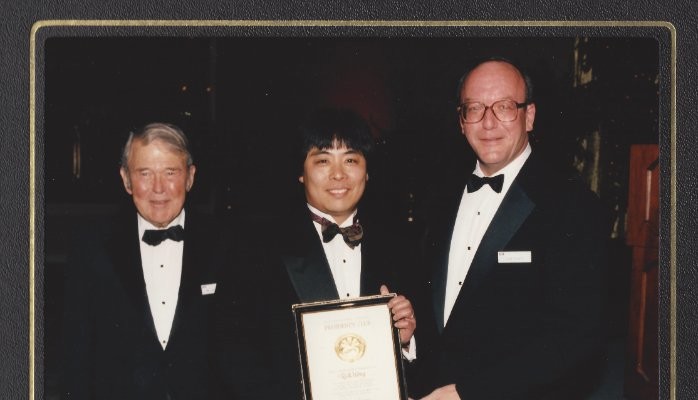
“Complex problems usually have a simple explanation.” – Lew Platt, HP
In spring of 1992, Lew Platt was named to succeed John Young as CEO of Hewlett-Packard. Prior to becoming CEO, Lew was the executive sponsor for our Boeing relationship. Those of us on that team were lucky to work with Silicon Valley’s low key, genuine and self-effacing leader – highly respected across industry.
Before taking the reins from Young, Platt was in Seattle for his quarterly visit to Boeing. He could have cancelled but he valued customer visits and keeping commitments to his sales teams. I was responsible for one meeting that day, with a Boeing SVP who was leading a new secret project. We knew Boeing was going to invest a lot, make a significant culture shift, but we knew little else. I thought it would be a great meeting for Lew.
We arrived at a small building in Renton, WA, across from the Green River, where Boeing was renting space for the small launch team. The building wasn’t a typical Boeing executive office. We entered a room filled with mismatched furniture, five IBM PCs, and stacks of three-ring binders labeled “Boeing confidential” on cafeteria style tables. They had six dilapidated chairs in a circle with no table in the center.
Over the next 70 minutes we listened to Boeing’s SVP who covered everything from reduced airplane costs, airline challenges, Airbus, and that polo-shirts would be the new normal. In the few questions we were able to get in we tried to clarify his points but all we got was, “This is a very complex problem.” After 70 minutes we had no project details and the agenda I developed with the Boeing team was garbage.
I had just taken the new CEO of one of the most successful companies in the world, on a sales meeting that accomplished absolutely nothing. Worse, I was awarded the President’s Club award that year so my mind was racing with what Lew could be thinking.
We left the building to walk to our car which was across the street next to the Green River. We got to the car and instead of opening the door Lew said, “Rick, let’s see if the salmon are running.” We walked to the edge of the road, Lew glanced at the river and calmly said, “Did that go the way you expected?” I said, “No. I’m really sorry.” He said, “Whatever they’re doing must be really complex because I don’t know what they just said.” He chuckled and said, “However, complex problems usually have a simple explanation.” He went on, “If you can understand the simple core of what they’re trying to do I’m sure you’ll find the simple way to sell them something.” I agreed to give him updates.
Lew was an avid fly-fisherman and he knew I fly-fished so he spent a few minutes on small talk about fly-fishing. This was Lew’s way of loosening me up. Even so, I remained tense and he knew it. We walked to the car, opened the doors and Lew said, “Rick, Don’t sweat it. These things happen.” We got in the car, shut the doors, and he said, “But we don’t need it to happen again.” He laughed and continued the fly-fishing talk.
I learned two important lessons that day. I learned that even one of the smartest people I’ve ever met, broke complex issues into their simplest components in order to both solve problems and to sell better. I also learned that respect and compassion from a leader teaches an employee as much as any lecture or rant.
It was around then that I started developing The Five Abilities® and its first inception was complex. It was helping nobody but me and, at HP, that meant it wasn’t meaningful. That comment by Lew, along with coaching from my management, led to the simplicity that is The Five Abilities today.
(Note: We learned the simple explanation behind Boeing's complex problems leading to HP being selected as the server provider for the program called DCAC/MRM. I was appointed to their IT board and had a cubicle in their program office.)
“Complex problems usually have a simple explanation.” – Lew Platt. The more we practice finding the simple explanation the more we’ll be able to solve complex problems for our customers, clients and partners. The Five Abilities helps us grow sales revenue by focusing on the simple explanations for complex problems faced by salespeople and customers.
©2015 Rick Wong – The Five Abilities® LLC
Sound Governance LLC
8yAnother moral to your story is don't let ego, arrogance, or pride get in the way. Lew helped you overcome a setback to your pride and persuaded you to not let it become a barrier to achieving your goal. Excellent story, Rick!!
WW EDU Lead | Dell Partnership at Microsoft
8yGreat story Rick...
Business Development | Go-To-Market | Revenue
8yExcellent examples in this one! Thanks for sharing Rick!